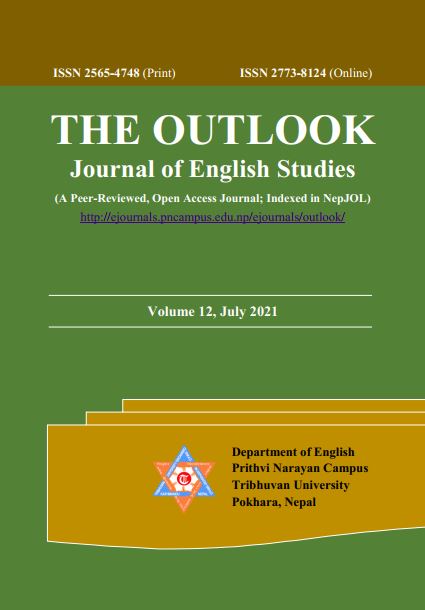The Influence of Vedanta on the Writings of Emerson: A Philosophical Inquiry
DOI:
https://doi.org/10.3126/ojes.v12i1.39095Keywords:
Brahman, Over-Soul, self-reliance, transcendentalism, Vendata, UpanishadsAbstract
This article explores the insights of Vedanta in the works of Ralph Waldo Emerson. Vedanta proclaims that the ultimate reality is within us. The Vedanta propounds for the philosophical explanations of the Vedas. The absolute reality that Vedanta projects as Brahman is essentially inward, and the entire phenomenal manifestations are just the reflection of that ultimate reality. Every phenomenal manifestation is the qualitative growth of the absolute one. The ultimate reality rules everything that exists in the material world. In this way, Vedanta believes in unity between God, man and nature. These essentials of Vedanta have their influences on Emerson’s writings. His essays and poems talk about this cosmic unity. His concepts of Over-Soul and the self-reliance remain as the metamorphosis of the philosophical insights of Vedanta. His poem “Brahma” exactly reflects the impacts of Vedanta because the poem views an individual in an eternal divine form. Therefore, Emerson proves to be an American rishi (sage) in Concord who accordingly elaborates and qualifies the Vedanta with new insights. This article is exploratory and interpretive. It tries to correlate the concepts, ideas and essence of the Vedanta in the writings of Emerson. This study, in this way, makes a philosophical inquiry of Emerson’s writing with the perspective of Vedanta.
Downloads
Downloads
Published
How to Cite
Issue
Section
License
Copyright (c) 2021 Department of English, Prithvi Narayan Campus

This work is licensed under a Creative Commons Attribution-NonCommercial 4.0 International License.
This license enables reusers to distribute, remix, adapt, and build upon the material in any medium or format for noncommercial purposes only, and only so long as attribution is given to the creator.

